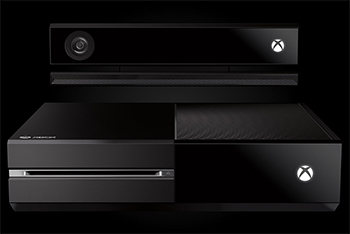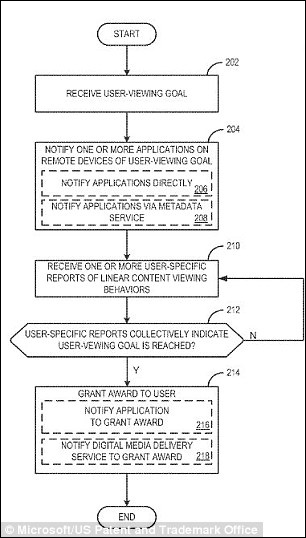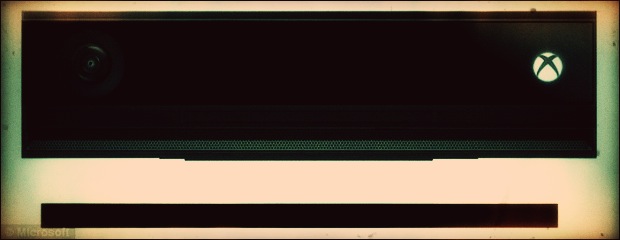Platform’s second major revision this year
Adan Salazar
Infowars.com
August 15, 2013
Privacy-minded gamers concerned over the new Xbox One console’s Orwellian surveillance powers can set their minds at ease, says Xbox Corporate Vice President Marc Whitten.
Xbox sparked outrage from the gamer community earlier this year when it was revealed that their 3rd generation console wouldn’t operate unless their new Kinect motion-sensing device, an advanced piece of spy tech eerily capable of reading your heartbeat, was attached.
Now Microsoft says the new Xbox won’t necessarily need Kinect to function.
Whitten nonchalantly disclosed the major revision in a recent interview with gamer website IGN. The soft announcement was hidden amid a lengthy defense of the Kinect’s so-called “abilities.”
Whitten said gaming and other console features would be greatly improved if the Kinect were to be attached at all times. “That said, like online, the console will still function if Kinect isn’t plugged in, although you won’t be able to use any feature or experience that explicitly uses the sensor.”
This is the platform’s second major alteration in response to heavy criticism this year.
 In mid June, Xbox declared it was scaling back its original requirement of a constant Internet connection after gamers said they would opt out of purchasing the console and indirect negative feedback from competitor Sony.
In mid June, Xbox declared it was scaling back its original requirement of a constant Internet connection after gamers said they would opt out of purchasing the console and indirect negative feedback from competitor Sony.
For instance, the poorly thought out design would have adversely affected soldiers fighting overseas wishing to quickly hook up and play on-the-go, as well as gamers in rural parts of the world where Internet connections are sketchy or not readily available – sales which, if absent, would leave a huge dent in Microsoft’s bottom line.
According to Parker Higgins, writer for digital privacy defenders EFF.org, “Two Congressmembers even introduced a bill called the ‘We Are Watching You Act’ aimed at Kinect and similar devices.”
Since March, we’ve also reported that the Xbox One’s features, when combined with the Kinect, would be dangerously on par with “telescreens” out of George Orwell’s 1984.
Describing the next-gen Kinect as “rocket science-level stuff,” Whitten told gamers at the 2013 E3 conference that the device would boast a 1080p high definition camera capable of capturing 30 frames per second.
Advertisement
Wake up your family, friends, neighbors and coworkers with the 12th issue of Infowars Magazine, revealing the truth behind the Trayvon Martin media spectacle.
Its high-definition camera creates a model of your human skeleton and can track you moving about in your home, leading many to infer that it will be able to know when you’re in the shower.

By monitoring and recording these different nuances, the new Kinect would also assist Xbox in building databases and profiles of individuals’ likes and dislikes, allowing it to serve up customized ads, services, or shows it thinks users might like.
In fact, Microsoft has applied for patents that would allow it to “reward” viewers who attentively watch advertisements or TV shows with meaningless “virtual awards” that other gamers would see “thus creating an incentive for each user to increase his or her score,” according to the patent published in May.
Speculation still looms as to whether or not the features described in patents will only be available to users who choose to opt-in, or if they’ll even actually be incorporated. As of yet, Microsoft has neither confirmed or denied the option.
When plugged in, Kinect would also have the “ability” to listen to what’s going on in your home. It will also have the option to await verbal commands like “Xbox on” to turn on the console, or “Xbox open tray” to open the disk tray.
It can also distinguish individual users’ voices. “Kinect Real Voice technology focuses on the sounds that matter, thanks to an all-new multi-microphone array,” Microsoft states on their Xbox One product page. “Advanced noise isolation lets Kinect know who to listen to, even in a crowded room.”
All of these invasive features will still be active when Kinect is plugged in.
This latest revision moves potential console owners and their home privacy back into a relatively safe zone, free from Microsoft’s prying eyes and ears, and should have a positive impact on sales, but anxieties over Microsoft’s participation in setting up backdoors for the recently unveiled NSA PRISM spy grid will still undoubtedly leave some gamers wary of their promises.
The Emergency Election Sale is now live! Get 30% to 60% off our most popular products today!




